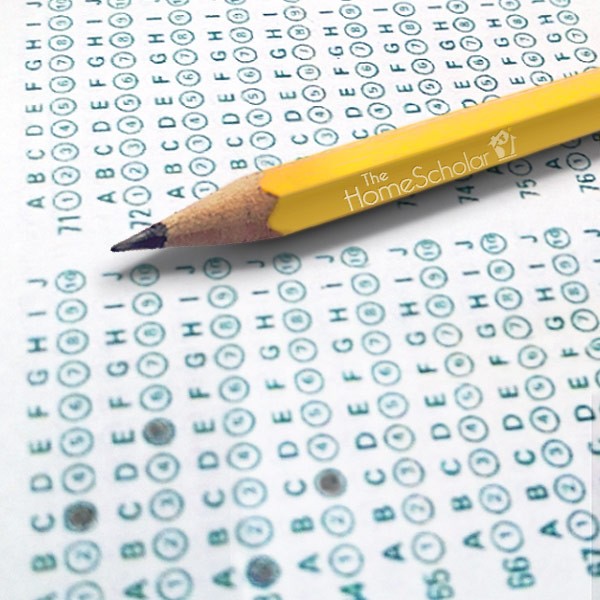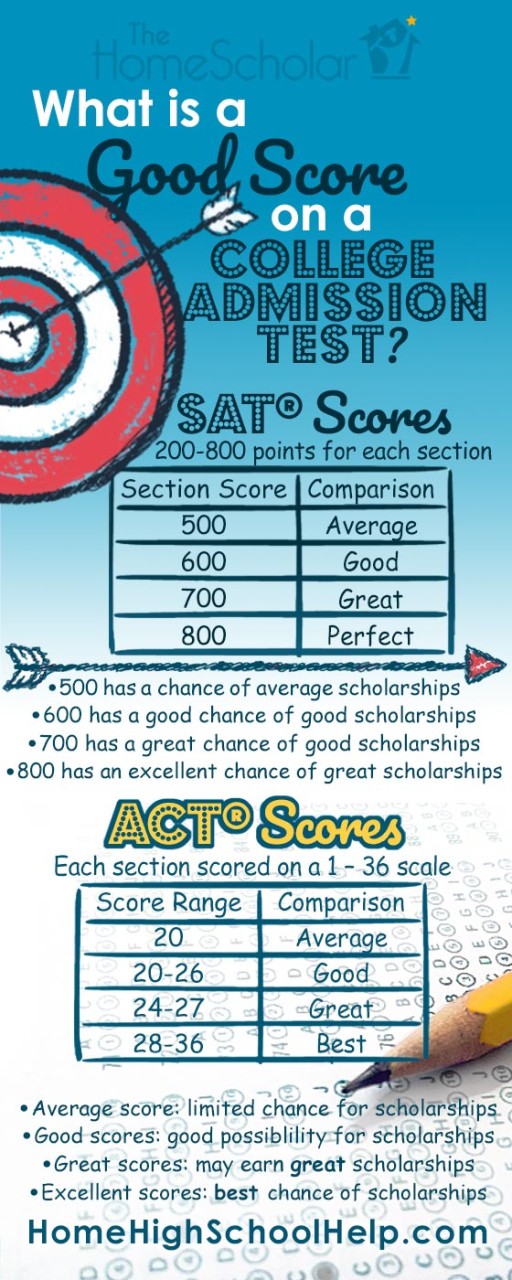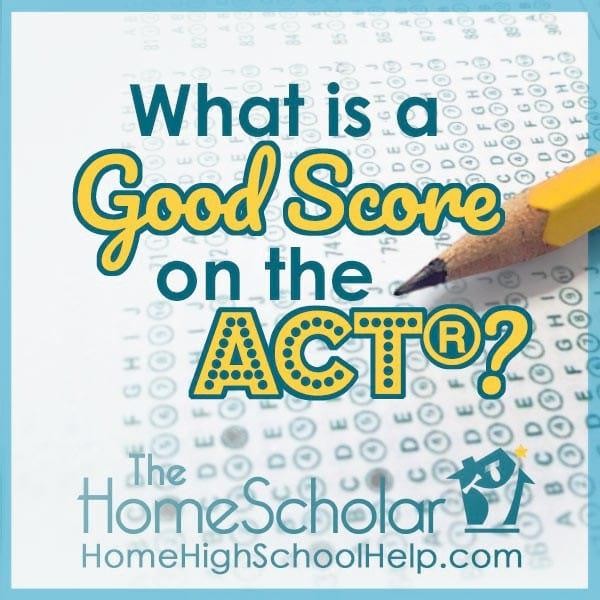The definition of a “good ACT® score” always depends on what college you are applying to, but I can give you some generalizations that will help you think it through. My recorded class, High School Testing – Simply Explained, is sure to help you figure out all of the ins-and-outs to high school testing.
The ACT® Score Range
The ACT® is scored on a 1 – 36 scale:
- An average ACT® score is about 20-22.
- A good ACT® score is in the 22-26 range.
- A great ACT® score is in the 24-27 range.
- An excellent ACT® score is in the 28-36 range.
Or put another way, a good ACT® score will impact college admission and scholarships:
- An average ACT® score will have a limited chance for scholarships.
- A good ACT® score might have a good chance for scholarships.
- A great ACT® score might have a great chance for scholarships.
- An excellent ACT® score will have the very best chance of college admission and scholarships.
But each college is different, and each college has different average ACT® scores they will accept. So look at the details for each college you are considering. Compare your ACT® test scores to the average ACT® scores of each college. That will tell you what a good score is in each particular college.
While some colleges are test-optional, they may still require ACT® tests for homeschool students. Many colleges are test-optional for admission, but may require tests in order to provide additional scholarships. A college will usually accept either SAT® or ACT® tests for admission and scholarship purposes.
A Good ACT® Test Comes from Test Preparation
Because a good ACT® test is tied to college admission and scholarships, I suggest that homeschool parents prepare all students for either the SAT® or ACT® test. That way your child will get the best possible score and have the most opportunities after high school. Learn how to choose which test is best for your student in this article: College Admission Tests – How to Ace the SAT® or ACT®.
At any college, test scores are just ONE of the things they consider when they make their decision. They will be looking at your transcript, GPA, course descriptions, activities, reading list, essays, and letters of recommendation. All you have to do is your own personal best on the test – you don’t have to get a perfect score, just your best score for you.
For more guidance with college admission, check out my book, The HomeScholar Guide to College Admission and Scholarships. An integral part of Sonlight’s College and Career Planning Kit, you can get your copy from Amazon directly.
Learn more in my video book review!





